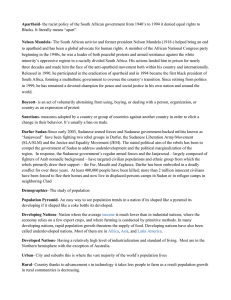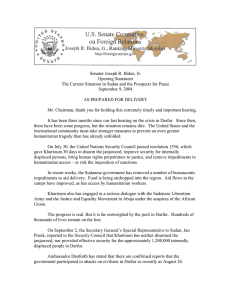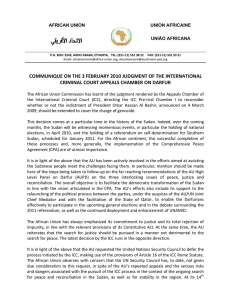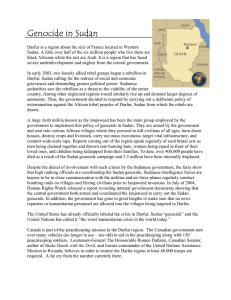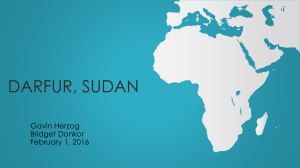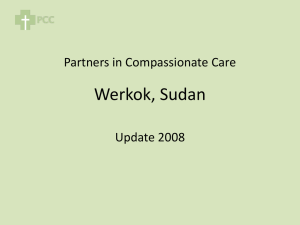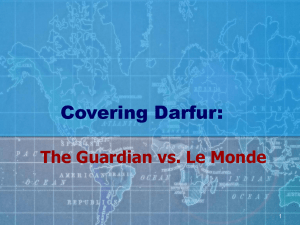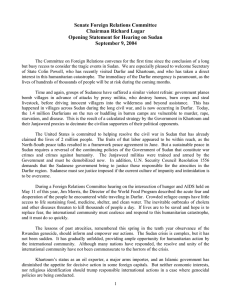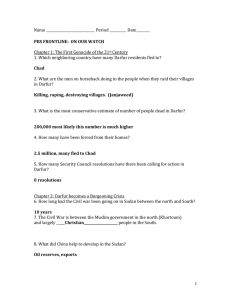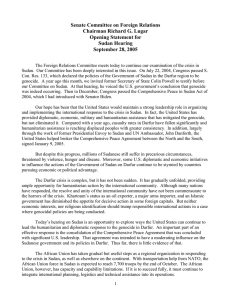File - Ms. Hite's Social Studies website
advertisement
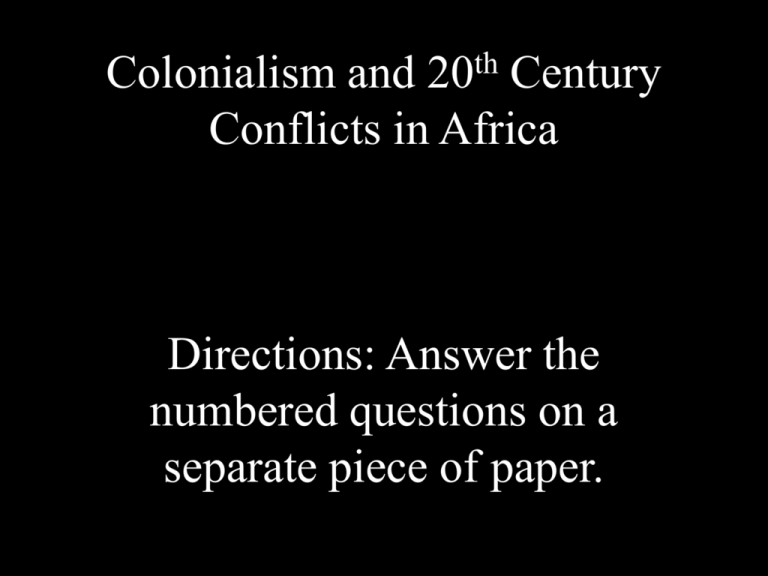
Colonialism and 20th Century Conflicts in Africa Directions: Answer the numbered questions on a separate piece of paper. From Hotel Rwanda Georges Rutaganda Paul Rusesabagina and Bob Dole These are few of the men wanted in connection to the Rwandan genocide. The Rwandan Civil War and Genocide are not isolated incidents. Check out the following list of armed conflicts in the African continent during the 20th Century. http://en.wikipedia.org/wiki/List_of_conflicts_in_Africa 1. Write the name of at least three conflicts as you check out the list. Why so much bloodshed? One of several reasons: colonialism •During the late 1800s and early 1900s Africa was conquered by European powers for economic and political reasons. This is known as colonialism. •When African people received their independence, many of the countries and governments were created by the departing European authorities without much consideration of the many ethnic and cultural differences. •As the Europeans left Africa, many conflicts have followed as competing African cultures, races and religions fight for power within their countries. 2. What is colonialism and how did it contribute to the many African conflicts in the 20th century? By the early to mid 1900s, Africa had been colonized by European countries. 3. Which two European countries owned the most African land? 4. Which two African countries were never colonized? Most African countries gained their independence between 1950-2000. 5. Which two decades saw the most African countries gain independence? 6. Which was the latest to become independent? The latest African conflict to receive world attention is the Darfur conflict in Sudan. The War in Darfur is a conflict that is in the Darfur region of western Sudan. Unlike the Second Sudanese Civil War, the current lines of conflict are seen by some reporters (such as those with USA Today and Slate magazine) to be ethnic, rather than religious.[6] However, a United Nations report[7] states that the various tribes under attack by the Sudanese troops and Janjaweed (chiefly the Fur, Masalit and Zaghawa tribes) do not appear to have a distinct ethnicity from their attackers. There is controversy over whether the conflict involves a genocide or not. (See the list of genocide declarations and the following list of statements opposing such declarations, below.) One side of the armed conflicts is composed mainly of the Sudanese military and the Janjaweed, a Sudanese militia group recruited mostly from the Afro-Arab Abbala tribes of the northern Rizeigat region in Sudan. They are mainly camel-herding nomads. The other side comprises a variety of rebel groups, notably the Sudan Liberation Movement/Army and the Justice and Equality Movement, recruited primarily from the land-tilling non-Arab Fur, Zaghawa, and Masalit ethnic groups. The Sudanese government, while publicly denying that it supports the Janjaweed, has provided money and assistance to the militia and has participated in joint attacks targeting the tribes from which the rebels draw support.[8][9] The conflict began in February 2003. Since the start of the conflict, about 450,000 people have been killed, and 3,000,000 people have been displaced. Excerpt from: http://en.wikipedia.org/wiki/Darfur_conflict Janjaweed: Afro-Arab Militia Sudanese Military The Rebels Sudan Liberation Movement Army Justice and Equality Movement The conflict between these groups has led to many deaths and many displaced people. The following link leads to a website with more information. http://www.thewe.cc/contents/more/archive/darfur_sudan.html The African Union has sent peacekeeping troops into the Sudan but they are limited in their actions. 7. What purpose, if any, do peacekeeping forces like this one and the U.N. in Rwanda serve? What responsibility do you, the United States and the United Nations have with regard to the situation in Darfur? Write at least a ½ page response were you answer this question for any or all three of the people mentioned. Support your answer with your thoughts, facts and details (be sure to explain your support).
